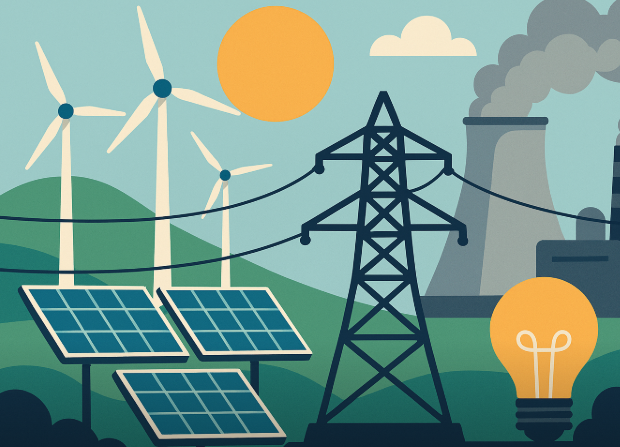
As the world races to combat climate change and transition
toward cleaner energy, Arizona in the United States is setting a compelling
example through bold reforms in its energy sector.
At the forefront of this transition is Arizona Public Service (APS)—the state’s largest electric utility, which is spearheading efforts to decarbonise its energy supply.
With a target to achieve zero carbon emissions by 2050, APS is aligning itself with global climate goals while responding to local challenges such as population growth and rising energy demand.
These developments in Arizona offer vital lessons for Africa, where many countries are also grappling with rapid urbanisation, increasing electricity needs, and the urgent imperative to adopt sustainable energy solutions.
By studying how APS is modernising its power grid and investing in green energy, African nations can draw inspiration for their own energy transitions in the face of global warming.
APS Clean Energy Plan: Path to 2030
APS has made a vow for a better, cleaner world. By 2030, APS aims to give Arizona 65% clean power. They plan to reach this big goal by making 45% of their power from the sun and wind by 2030.
They plan to accomplish this by ending coal use by the closure of active coal-based power plants, using cleaner energy sources by around 2031, thereby significantly cutting down emissions from coal.
They will also increase the number of renewable solar-based, wind-based, and hydropower-based energy projects, while investing in battery tech that holds power steady and strong when there is no sun.
There is also adding value for its customers with energy-saving plans and digital tools to help them use less energy.
Another main point is helping communities and business heads focus on green growth and aiding people in making their workplaces and homes use less energy.
Realizing that the climate targets cannot be achieved by any company or individual alone, teamwork is therefore needed.
How APS Helps Homeowners Save Energy & Money
It’s only through our combined caring that Arizona becomes cleaner, and clean energy with APS makes it simpler than ever for us all to help out. Here’s how:
- Smart Thermostat Rewards – Get rebates for using a smart thermostat that saves energy automatically.
- Tips to Save Power – Tips by season, from LED lights to AC checks before summer, to help you cut down on power use.
- Perks for EV Charging – Deals on home chargers and perks to charge when energy demand is low.
- These plans let you lead, help you watch, tweak, and make your power use better while backing a clean grid.
While the state of Arizona is innovating new tech, it’s also seeing criticisms not only for energy usage as a whole, but for its energy-intensive and industrial-sized power use, like crypto mining. That muddles things a little, as a lot of the blockchain community is pushing for energy efficiencies.
For some of these crypto platforms, as with many in this BC.game review, we see the growing consumer demand for decentralised entertainment. In many cases, these sites are most identified with online gaming but contribute to the decentralised and distributed blockchain movement for energy efficiency, which also links to transparent, digital transactions.
Shared Responsibility for a Cleaner Future
The future for energy in Arizona extends beyond installing infrastructure and following energy use. APS is exploring new ideas all the time and putting forward proposals, which is a positive approach. And, for meaningful change to occur, people should start adopting and implementing parts of these ideas.
Just like the largest tech companies, APS doesn’t stop at building the infrastructure. Every time they make any system, they keep in mind what should matter: the structure of the design, how the systems function, and how they influence things more broadly.
APS is demonstrating that clean energy does not bring major damage to the environment. Firms are trying to improve their data management as well as invest in more renewable energy. It’s not only for big companies—every one of us, every home, every person, every choice matters. That’s when change goes into motion.







![[PHOTOS] Tight security at Treasury ahead of budget reading](/_next/image?url=https%3A%2F%2Fcdn.radioafrica.digital%2Fimage%2F2025%2F06%2Fe66aaffe-fe45-471b-a65b-fc3e272f5385.jpg&w=3840&q=100)


